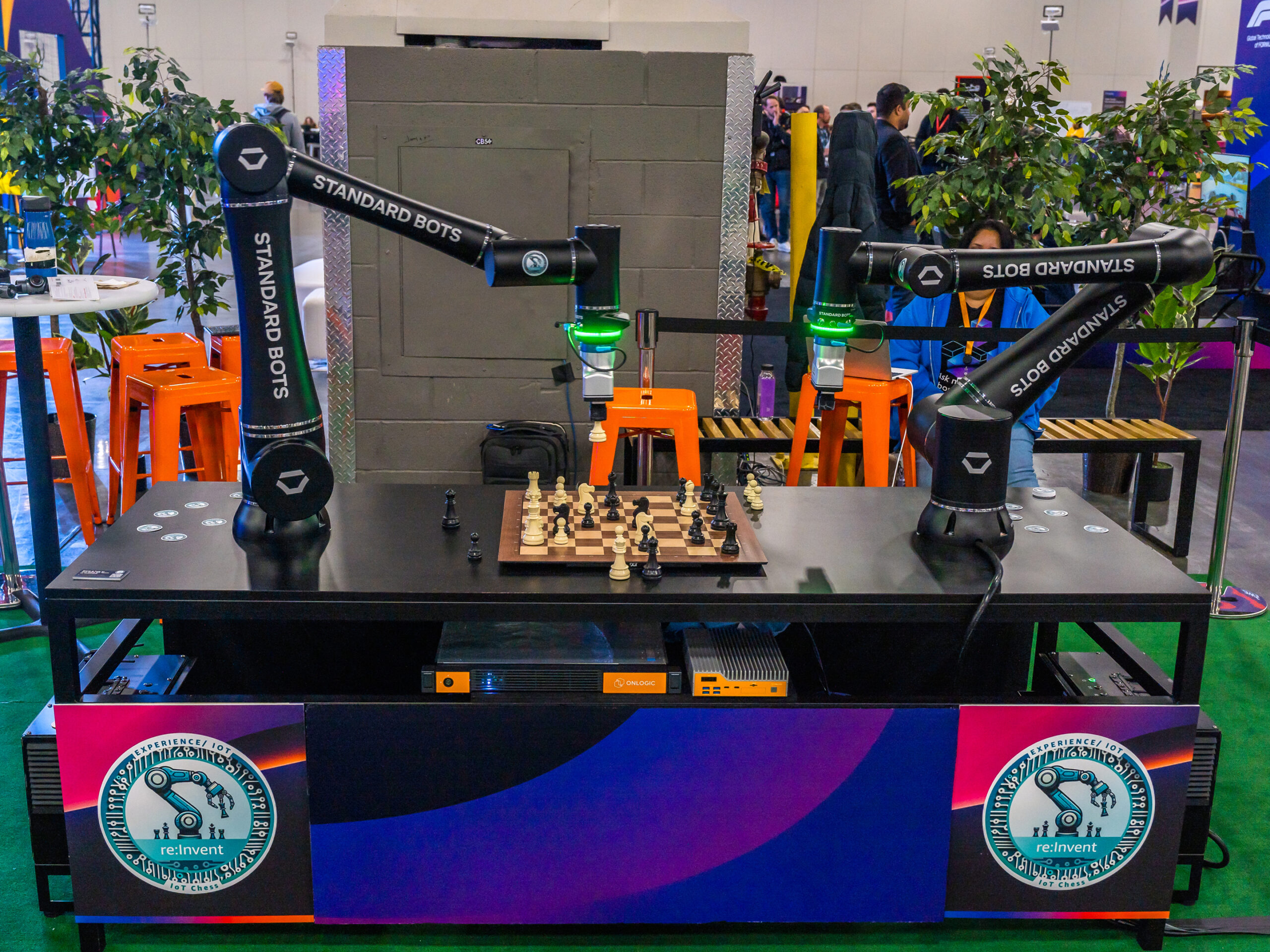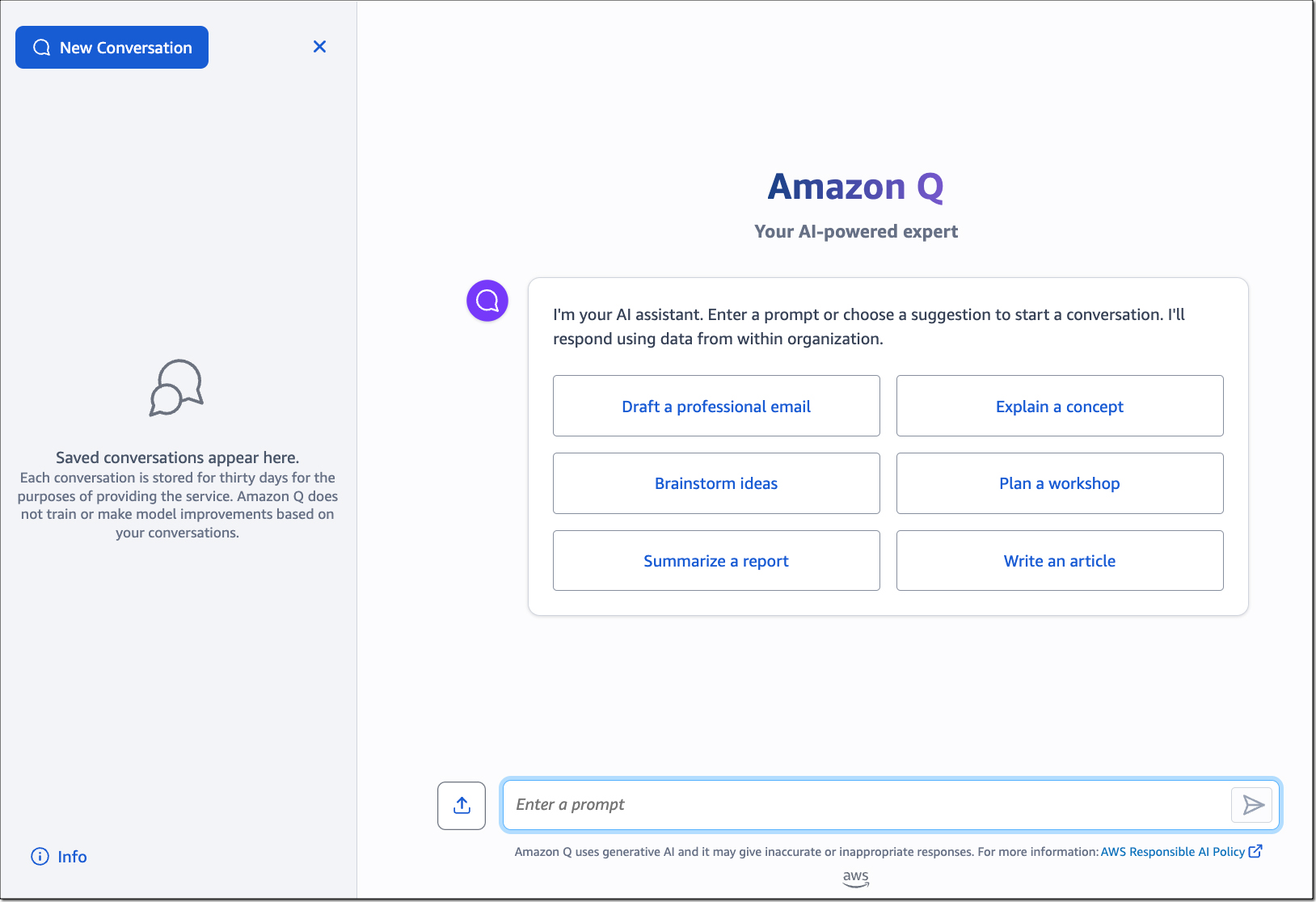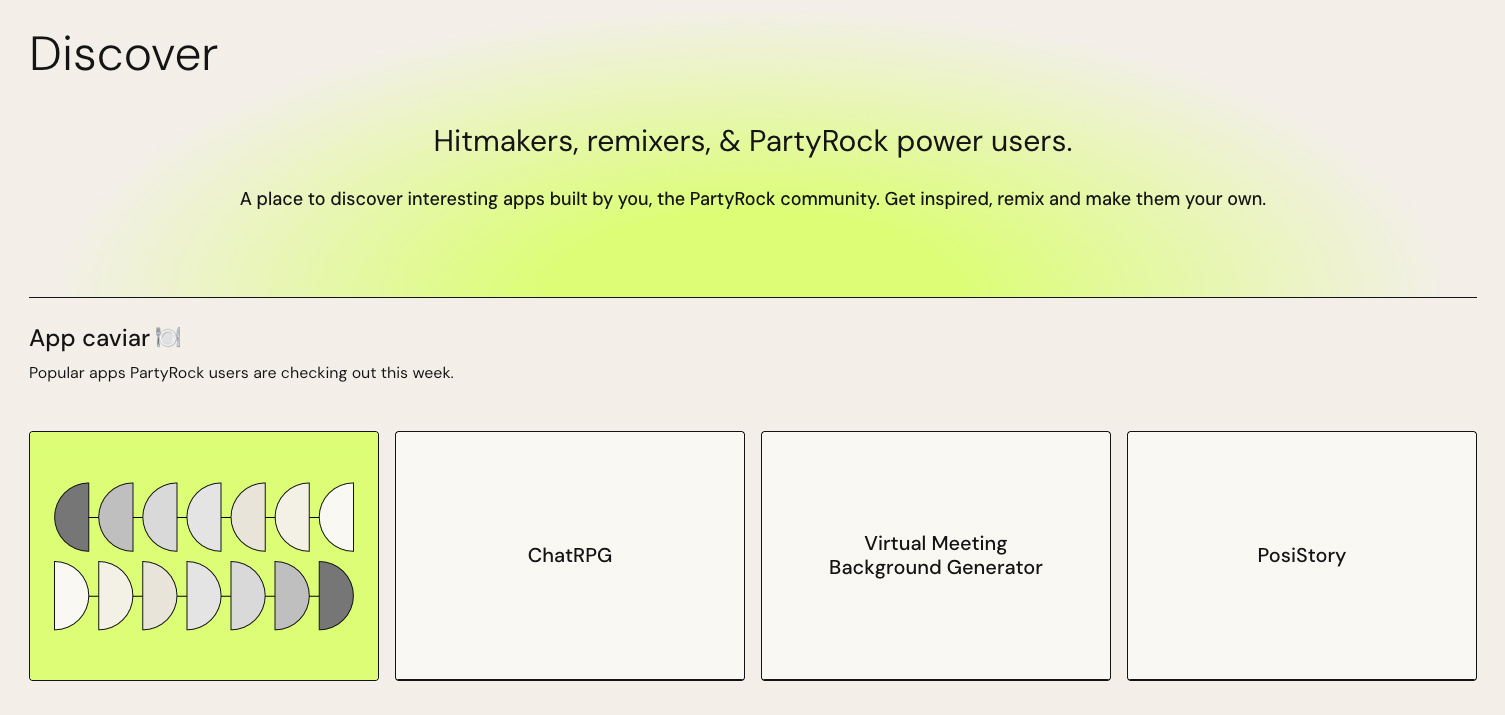
Generative AI (artificial intelligence) dominated Amazon Web Services’ re:Invent 2023 conference in Las Vegas, as the company rolled out a slew of new tools for developers and businesses.
Most of what Amazon Web Services (AWS) does isn’t always visible on the consumer side, but that doesn’t mean it isn’t playing an impactful role. It often does for brands that use its cloud and software services, many of whom are familiar brands people interact with in some form or another. ChatGPT almost single-handedly brought AI into the consciousness of the masses, opening the door to everyone to try their hand at typing in prompts and seeing the results.
re:Invent is more of a business-to-business conference, but in the end, much of the show’s content could eventually land right into consumers’ laps. Here are some of the standouts.
AI playing a bigger role in sports

Formula 1 (F1), which had just finished its first Grand Prix in Las Vegas, says it will continue to utilize AI tools to improve both driver safety and fan experiences to grow the sport.
If you’re a sports purist, you may not like the role analytics play in scouting and player development, but there’s no question Generative AI is going to be part of various sports’ operations going forward. The PGA is taking a serious stab at it through its own virtual assistant, which it demoed as a proof of concept it wants to put into action in mid-2024.
The idea is actually pretty simple. The AI-powered assistant would work in the PGA app or website, where users can ask it to pull up any stat or reference to a player, course, tournament — basically anything involving the PGA Tour going back to 2005. Why only 2005 and not earlier? That’s apparently coming, but for now, the virtual assistant will only pull from data the Tour owns and can index.

Two robots play a game of chess using Anthropic’s Claude.ai platform, countering each other’s moves without human decision-making.
In a demo taking place at the TPC Summerlin golf course that hosts the Shriners Children’s Open during the PGA Tour, pro golfer Tony Finau hit three approach shots (the longest of which was an astounding 384 yards). All data related to each shot appeared on a screen, like distance, carry, ball speed and club speed, among others. Using the virtual assistant, you could ask who holds the record for the longest shot at the same course, or whether a player like Finau has set any records himself. The assistant then pulls up stats and resources, including video clips specific to the query.
In other words, not only can you geek out on the metrics, but also easily reference and present the exact video clip without moving over to YouTube to find it. There are 160,000 hours of video in the library to start, plus the countless stats and data points being fed into the AI assistant.

A screen shows every move the robots make, but more importantly, text input describes how each robot rationalized the move.
The PGA is doing this using Amazon Bedrock, a machine learning service to build Generative AI applications, and built the assistant with help from the AWS Generative AI Innovation Centre. It works with any query that falls within the 2005-present window, enabling fans to get answers in real-time without switching apps or losing sight of the live action. For now, it will mainly focus on the men’s tour, as it will take time to apply it to the women’s tour because it doesn’t have the same level of data. Scott Gutterman, senior vice president of digital operations for the PGA Tour, told MobileSyrup that building a proprietary AI model takes longer to do, so launching the virtual assistant to incorporate more data will likely come in a series of private betas.
Gutterman also noted that Generative AI could change how players assess their own performance, like which shots or holes cost the most strokes in a tournament or entire year and why they were so costly. AI could also pull data to compare with other players to better understand how the same search criteria applies to others. It sounds like Moneyball on another level, but Gutterman also clarified that many players already use tracking analytics to learn the subtleties of their play and the various courses they play on to improve their game.
Amazon Q
 Speaking of assistants, Amazon unveiled its own AI-powered chatbot for businesses. The idea is to take 17 years of AWS data to power Q in helping businesses figure out what to do in a given situation. That could be a new solution or improving the system in some way. Q basically has everything AWS learned since it launched in 2006, parsing the data to provide helpful tips or suggestions for any organization using it. For the business itself, it would work by “understanding your systems, your data repositories and your operations,” which would mean indexing all the data and content within the organization to help the AI-powered chatbot make those meaningful suggestions.
Speaking of assistants, Amazon unveiled its own AI-powered chatbot for businesses. The idea is to take 17 years of AWS data to power Q in helping businesses figure out what to do in a given situation. That could be a new solution or improving the system in some way. Q basically has everything AWS learned since it launched in 2006, parsing the data to provide helpful tips or suggestions for any organization using it. For the business itself, it would work by “understanding your systems, your data repositories and your operations,” which would mean indexing all the data and content within the organization to help the AI-powered chatbot make those meaningful suggestions.
With everything it learns, Q could theoretically highlight which aspects of the business need some improvement, or present solutions that involve software the business uses or not. That would also include pointing out inefficiencies in software processes that take too long, offering options on how to cut that down. Since it’s an AWS product, it could also make connections with other vendors who could potentially help as suppliers or providers. Like ChatGPT, Q will also recognize uploaded files, be it text documents, spreadsheets, etc., to summarize the content or find pertinent details upon request.
Amazon claims Q is scalable so that smaller businesses could also use it to help cut costs and scale up in more manageable ways. It’s unclear whether Q will be as effective or reliable as the company claims, but it believes the inherent guardrails put into it will make it easier to trust when it finds something to deal with. It may also only be a matter of time before we see Q power consumer-facing chatbots as well. The jury’s out in any case, so we’ll have to wait and see.
Building apps for dummies with PartyRock
 If you have no idea how to code anything, yet like the prospect of building an app, AWS PartyRock makes it feel like an experiment that won’t go terribly wrong. It’s based on Bedrock and uses a large language model (LLM) to help users build small apps with a non-code template system and user-friendly interface driven by Generative AI at every stage. It’s available to try for free, and while it may look a little weird at first, text prompts largely guide you the whole way. Plus, you can also try it on a phone or tablet, not just on a computer.
If you have no idea how to code anything, yet like the prospect of building an app, AWS PartyRock makes it feel like an experiment that won’t go terribly wrong. It’s based on Bedrock and uses a large language model (LLM) to help users build small apps with a non-code template system and user-friendly interface driven by Generative AI at every stage. It’s available to try for free, and while it may look a little weird at first, text prompts largely guide you the whole way. Plus, you can also try it on a phone or tablet, not just on a computer.
If you know your way around some programming language, you can opt for more manual choices, like connecting modules together and determining what happens when they do with your own input. The gist is Amazon hopes the tools in PartyRock help people get past any initial trepidation or hesitancy in trying to build applications. The company often mentioned the importance of education in the growth of Generative AI to prepare for how it may change jobs or create new ones.
Don’t get the wrong idea — you won’t be building the next killer app with the web-based tool noted here, but it could be a stepping stone to learning how to be an app developer without any prior knowledge. At least Amazon hopes that will be the case, so that mini-apps the likes of “Find the Perfect Pup” or “ChatRPG” spur further creative ideas that wouldn’t otherwise disappear in the ether.
Amazon now has an AI image generator
 Bedrock is also powering Titan Image Generator, giving Amazon’s enterprise customers a tool to produce images through a text-based model based on AI. The premise is that businesses who use it can create images that add to existing subjects, so theoretically, you could have the same exact product in multiple images but in different settings or backgrounds. It can also produce entirely original images based on whatever natural language prompts are applied.
Bedrock is also powering Titan Image Generator, giving Amazon’s enterprise customers a tool to produce images through a text-based model based on AI. The premise is that businesses who use it can create images that add to existing subjects, so theoretically, you could have the same exact product in multiple images but in different settings or backgrounds. It can also produce entirely original images based on whatever natural language prompts are applied.
It’s not yet clear how this might affect photographers working with corporate clients, but the Titan Image Generator will be out of consumers’ hands and fall squarely into business use cases. For the time being, Amazon doesn’t intend to make it a competitor to popular text-based image generators like Dall-E and Midjourney. Plus, it’s not even a separate app since it’s embedded in the developer tools AWS offers.
The company also says it wants to safeguard against copyright infringement and inappropriate content by putting up guardrails that will include invisible watermarks, thus clarifying images are indeed generated by AI. Titan Image Generator is currently available as a preview in the United States and only in English, though Amazon says it plans to expand on those in time.
A generation of Generative AI?

A proof of concept called StreetPortrAIt where an AI printer can output a pencil sketch from a selfie on a phone.
It’s noteworthy re:Invent 2022 had scant mention of Generative AI, much less the bevy of tools and use cases presented 12 months later at the 2023 conference. The implications of its impact covered such a wide swath of industries and implementations — some being more theory than practice, of course — left an impression that AI could be a problem-solver unlike any other. It’s why presentations and panels ranging as far and wide as driver autonomy, media production, cancer research and treatment, travel and hospitality, gaming, app development, sports, and others touched on what role Generative AI could play for both businesses and the public.
What remains to be seen is how brands and enterprises harness these tools. AWS Chief Technology Officer Werner Vogels addressed that referring to the multitude of languages and cultures around the world, suggesting that building trust in language models could take time because machines can only go by the information fed to them by humans. Thus far, that’s largely been in English with an American-centric viewpoint, though it is happening in other countries too. Like social media, where humans are behind the algorithms, revenue has driven change rather than privacy, ethics, altruism or democratization. Legislation is also murky on what defines AI and where it stands, leaving much of the policing on providers like AWS. It could be a bumpy ride as Generative AI evolves with these parameters in mind.
Possibilities for better efficiencies in business operations abound, which in turn, are supposed to lead to more personalized and flexible services for consumers. Don’t be surprised to see more “AI” bandied about when brands introduce new services, as well as new forms of education to teach these tools to anyone and everyone who’s interested.
MobileSyrup may earn a commission from purchases made via our links, which helps fund the journalism we provide free on our website. These links do not influence our editorial content. Support us here.


